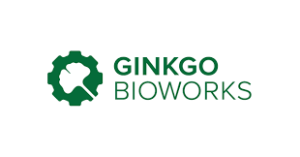
Posted: 19 April 2023
The Wisconsin Alumni Research Foundation (WARF), which has a mission of supporting research at the University of Wisconsin-Madison, and Ginkgo Bioworks, which is building the leading platform for cell programming and biosecurity, today announced a partnership to leverage Ginkgo’s proprietary high-throughput combinatorial CAR discovery and screening platform with the aim of discovering next generation GD2 CAR T-cell therapies with improved persistence, proliferation, fitness, and other functional properties to improve efficacy for the treatment of solid tumors.
Through this partnership, Ginkgo will collaborate with the University of Wisconsin-Madison researchers Professor Krishanu Saha, Ph.D., as principal investigator (PI) and Dr. Christian Capitini, M.D. as co-PI. Professor Saha’s lab focuses on developing the next-generation cell engineering techniques to advance human therapeutics, and Dr. Capitini is a pediatric oncologist who has extensive clinical experience with CAR T-cell therapies, including serving as a site PI for the clinical trial that led to the first FDA approval of a CAR T-cell therapy. The two have collaborated on the development of a GD2 CAR T-cell therapeutic candidate for the treatment of neuroblastoma, a type of cancer generally affecting young children, using a non-viral, site-specific integration method developed by Professor Saha and published in the Journal for the Immunotherapy of Cancer: Production and characterization of virus-free, CRISPR-CAR T cells capable of inducing solid tumor regression.
Under this collaboration, Ginkgo will use its pooled CAR screening platform to design and characterize novel intracellular signaling domains that prevent the exhaustion of T-cells in the GD2 solid tumor context. Any novel designs will be validated in high throughput in vitro screens and in in vivo murine models. In addition, Ginkgo and WARF plan to collaborate on the development of a pooled in vivo screening platform to advance novel CAR discovery further.
“Ginkgo’s high throughput screening method has proven successful in enabling massively parallel testing of CAR designs, and has already led to the discovery of new intracellular domains (ICD) combinations,” said Krishanu Saha, a professor at the University of Wisconsin-Madison. “By partnering with Ginkgo, we aim to unlock the potential to transform patient outcomes and reimagine the future of solid tumor cancer treatment.”
CAR T-cell therapies show tremendous promise for the treatment of cancer. However, their use has thus far largely been limited to targeting blood cancers because they have failed to show consistent efficacy in treating solid tumors, which represent approximately 90% of adult human cancers. Part of the challenge when applying CAR T-cell therapies to solid tumors is T-cell exhaustion, a state of dysfunction arising from excessive antigen stimulation in the immunosuppressive environment of a solid tumor.
WARF and Ginkgo hope to work towards solving this challenge by utilizing Ginkgo’s high-throughput combinatorial CAR discovery platform. As a platform technology company, Ginkgo can leverage its full stack of mammalian cell engineering expertise and capabilities to enable the high throughput screening of CAR T-cells to help discover and optimize future next-generation therapeutic candidates for its partners.
“WARF is delighted to see this important collaboration,” says Erik Iverson, WARF CEO. “We know these alliances between our university researchers and leading biotech industry partners have the potential to result in benefits that positively impact human health.”
“This collaboration represents a fantastic opportunity to demonstrate the potential value of pooled CAR screening approaches directly in the context of devastating diseases like early childhood cancers,” said Narendra Maheshri, Head of Mammalian Engineering at Ginkgo. “It’s especially exciting to work with pioneers like Professors Saha and Capitini, who have pushed R&D boundaries in the laboratory and whose approach is thoroughly grounded in the translation of their findings for clinical impact.”



